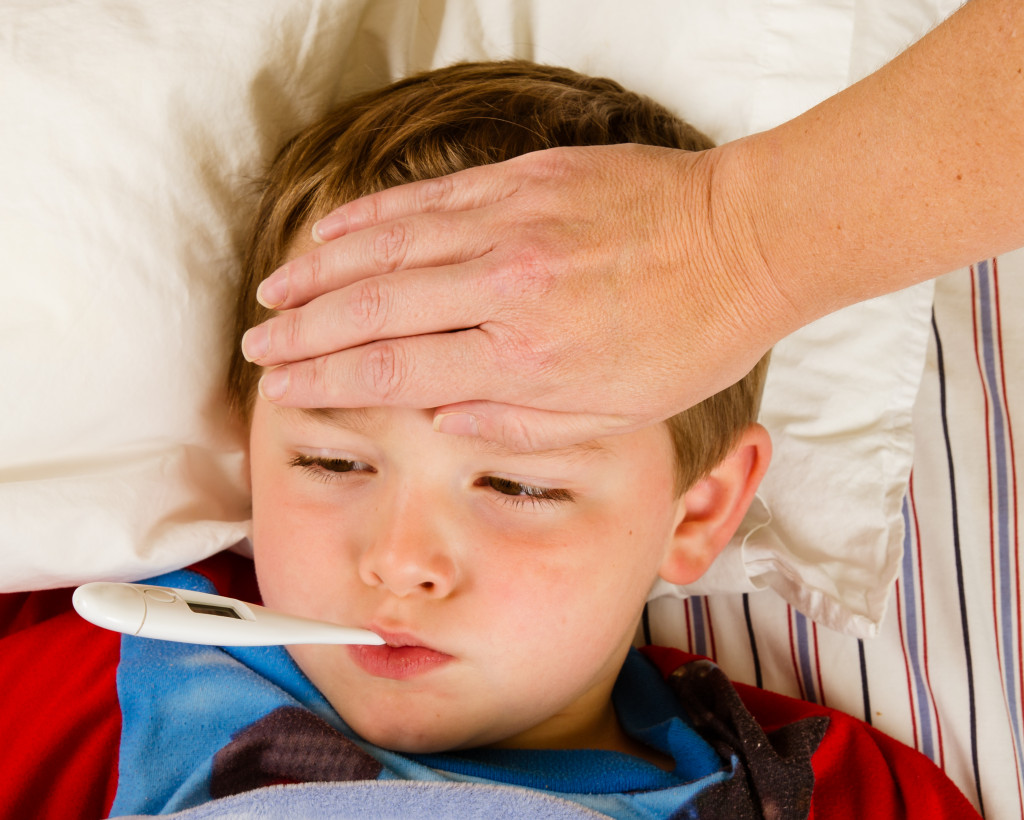It may seem like children had better resilience to withstand the virus. A study revealed children who had COVID-19 in 26 countries in various parts of the world fared a lot better than adults. These pediatric populations had far lesser deaths compared to the adult population who were also infected by the virus. Said research done by the University of Texas Health Science Center involved looking into over 7,780 patients who were in the pediatric age.
It’s definitely welcome news. But that may be the exception rather than the rule. Usually, children are more susceptible to getting sick than adults. That’s why as a mother, you must always be vigilant, especially if your child is still in his early years. One reason for children’s greater susceptibility is their exposure to sickness is much limited. Their bodies, therefore, have not built the needed immunological defenses to fend off the attacks of disease. This is why getting your child vaccinated against life-threatening diseases is wise.
So the million-dollar question is how do you prepare for your child’s medical emergency? What is increasingly apparent now is prepping ahead of time can give you huge dividends when an actual emergency comes. Exactly why we’re outlining right here what you need to do when such a dire situation happens to your child.
Refer to Your Child’s Doctor
Of course, you really can’t expect things to come together if you don’t plan ahead. Therefore, it’s best you do your due diligence way ahead of
To boot, you need to ask your child’s pediatrician which medical facility should be best in cases of emergency. The nearest one need not be the best one, mind you. A good facility should have nurses and medical doctors who are specially trained to handle pediatric cases. Often, you find these in big teaching hospitals.
The thing is it’s not just about the expertise. The tools matter too. So a most equipped facility must have infant or child-size tools and testing devices to work best with children.
Take note that if the condition of your child is life-threatening, you’ll have no choice once he’s taken. It’s the job of the paramedics to get him to the best possible facility, which usually is tantamount to the nearest.
The good news is mobile integrated healthcare (MIH) these days are more equipped than ever to provide the needed medical care for a 911 caller. That means giving your child the best care while in transit. Even better, these come with the systems and the software to make the whole process as seamless as can be. So you get your needed updates about your child in a jiffy.
Practice the Drive to the Facility
More often than not, you’ll be the one to bring your child to the hospital. So a good way to make things easier for everyone is to practice that drive going to the target facility. Make the road familiar. In the actual drive, you’ll be able to forward your child to the center in no time.
Additionally, plan your drive. If your work is outside, figure out ahead of time the fastest route to get to that hospital from work. It may seem absurd practicing these routes, but it can be a lifesaver in cases of emergency.

Keep Vital Info about Your Child Accessible
It matters that vital data about your child can be had in one clean sweep. So put it all in a diaper bag and atop the fridge. Alternatively, you can post it on the main phone.
These data should include:
- Pediatrician’s name and contact number
- Your baby’s full name (first and last)
- Medical history
- Date of birth
- Medications he’s taking
- Insurance provider
- Immunization history
- Names of parents
- Social Security Number
- Work phone/Home phone
Take note that there really is no need for you to provide a consent form should you not be around. If you or your partner is not there, the administrator is obliged to make the decision. If your child’s life is hanging on the balance and you’re not there, the medical staff is legally bound to make the right decision.
Make Emergency Phone Numbers Available
Information is key. Post the list of key emergency phone numbers on your fridge for best results. Additionally, you can post it on the main phone of the house.
Possible data to include:
- Hospital ER contact numbers
- Police/Fire dept. Numbers
- Pediatrician or Family Doctor numbers
- Friends Nearby You can Call for Help (at least two)
- Poison Control Center
Make the Most of a Calling Card
For some reason, you may not be able to use a cellphone in the medical center. This is especially true in the operating room as they could interfere with the electronic equipment. A calling card would be handy. You can just give one to the doctor in charge, so he can update you.
Take a CPR Course
CPR is a lifesaver. Indeed, knowing how to give one to a child or an infant can be the best way you can assure your child is safe in cases of emergency. For one, it can help resuscitate your child in emergency situations. Additionally, it teachers you how best to assess the airways of a child.
Indeed, learning how to do CPR is wise. It means you’re ready to get things done when it matters most.

